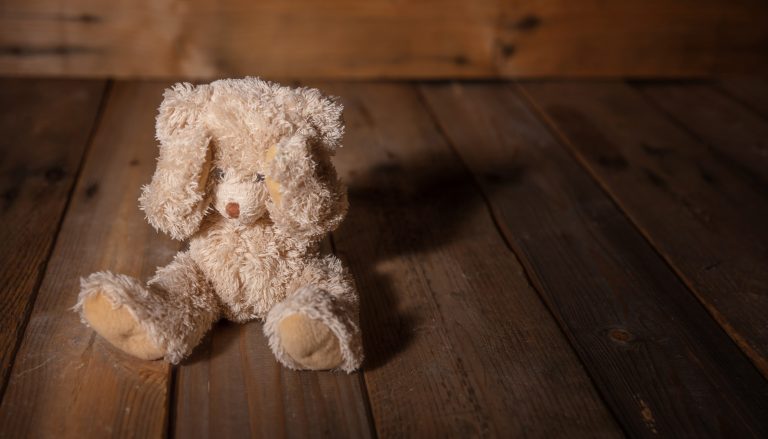.png?length=126&name=Circle%20Photo%20(7).png)
Article written by Ruhaina Dhirani
Individuals all around the world are either being ordered or encouraged by lawmakers to observe lockdowns to slow the spread of the Coronavirus and help flatten the curve of the pandemic. Schools, libraries, community and religious centers, and all non-essential businesses, have been ordered to shut down. A rising number of businesses are sending employees to work from home, in order to keep safe during this pandemic.
For some people, being at home is considered a blessing, others not so much. For victims of domestic violence, it is a nightmare. Although self-isolation and physical distancing may help reduce the spread of COVID-19, individuals stuck in abusive relationships have been placed into a greater risk of daily danger. Activists worldwide have reported an alarming rise in domestic violence cases since the start of Coronavirus-related quarantines. A recent statistic, by the York Regional Police, cites that domestic incidents have increased by 22% as a result of the COVID-19 measures in place.

Warning signs of an abusive relationship and its effect on children:
Domestic violence is not only physical violence. It takes many forms such as sexual, emotional, physical or psychological. Domestic violence is a pattern of behaviour in a relationship that is used to gain power and control over a current/ex spouse or partner.
An abuser may use the following tactics to harass their spouse/partner or ex-spouse/ex-partner:
- Send repeated communication; emails, texts, phone calls
- Use the litigations process to harass their victim
- Use financial restrictions to control their victim
- Expose their children to threats or violence against their victim
- Control who their victim can be friends with or who they are able to speak with
Many cases have confirmed that children who witness and/or are exposed to domestic violence, in the home or throughout their lives, are at a serious risk for long term mental health problems. This includes but is not limited to: anxiety, depression, low self-esteem, poor school performance and difficulty in forming trusting relationships with others.
Pandemic + Domestic Violence = Recipe For A Disaster
The COVID-19 protocols of quarantining, social distancing and isolation has certainly helped an abuser’s dream come true.
Abusers now have an ability to further control their victim’s actions, as victims are now forced to stay in close proximity to their abuser for all hours of the day. On the other hand, such protocols have left victims feeling as though their safety net has been taken away from them. Now, add the children into the mix, and an already disturbing situation turns into a nightmare. With the closure of schools and limitations in place surrounding social interactions, children are witnessing and exposed to an increase amount of domestic violence taking place in their home as they are forced to spend every minute in seclusion with their family.
The practice of self-isolation and social distancing has also hampered a victim’s attempts to get help. In the past the victim had a chance to reach out for help whilst her partner/spouse had left for work. Now such an option is most likely not available to her.
Below are 3 options a survivor living in an abusive relationship may take during quarantine, in order to ensure safety of herself and her children.
Create a Safety Plan:
Create a personalized safety plan in advance that is practical during a pandemic in case you and your children have to leave an abusive relationship very quickly. Find a discreet hiding spot for your personalized safety plan and important items. These should include, but aren’t limited to, all contact details of the nearest shelter or help center, some money, a phone, and contact details of friends, family members or neighbors you will contact once you have escaped.
Reach Out For Help:
Be mindful of an escape plan and seek help immediately. Even though we are all encouraged to stay home and observe social distancing, you always have the option to leave, despite how trapped your abuser may say you are. Be sure to maintain social connections with family and friends through any means, such as text messages, phone calls and social networking. Allow for a channel of communication to be available if you need to notify anyone of abuse in case of an emergency.
Many different organizations all around the world like the National Association of Domestic Violence Hotline have made themselves available in different ways during this pandemic, and have also developed new strategies to support victims under lock down. This hotline offers services through phone and online chat. A special feature has also been built in the online chat, whereby it allows a victim to press a button to escape the chat in case the abuser walks into the room, closing the chat immediately and removing any cookies. This makes it easier for victims to feel secure to reach out for help while confined at home due to the self-isolation measures.
If you are experiencing domestic violence, help is just a click away.
But, remember if you are in immediate DANGER, please call 911.
Seek Judicial Help:
Focus on your legal issues only after you and your children are safe. Once circumstances allow, seek advice from a Family Law Lawyer to ensure your rights are protected with respect to issues such as, but not limited to: restraining order, exclusive possession of the family home and child custody and access. Even though the regular court operations have been suspended in order to protect the health and safety of all court users and to help contain the spread of the virus, urgent matters are still being heard. Domestic violence/abuse would qualify as an urgent issue.
If you need help, WE ARE HERE.
%201.png?)
